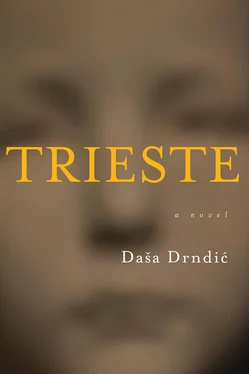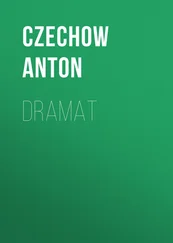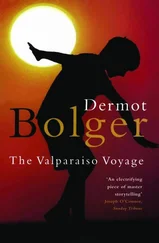San Sabba, 1944
Erich Bauer, S.S.-Oberscharführer, born in 1900. Short but strong, exceptionally cruel. Manages gas chambers in Sobibor. Stationed in Italy at San Sabba, 1943 to 1945. Arrested in 1950, recognized by chance at a Berlin around amusement park by Samuel Lerer, survivor of the camps. In 1951 sentenced to death; after death penalty is abolished in Germany, sentence is commuted to life. Dies in prison in Berlin in 1980.
Arthur Daschel, guard and cremator of corpses at Sonnenstein. At Belzec and Sobibor oversees building of camps. Lives in and around Trieste from 1943 to 1945, after which all trace of him is lost.
Hubert Gomerski, S.S.-Oberscharführer. Supervisor at Sobibor, member of T4 group, spends years 1943 to 1945 in and Trieste. In 1948 sentenced to life imprisonment, released in 1972 for ill health, but in 1974 sentenced to another fifteen years.
Karl Frenzel, S.S.-Oberscharführer. Born on 28 August, 1911. Carpenter. Member of Nazi Party from 1930. Involved in T4 programme. Arrives in Sobibor in 1942 with Stangl’s crew. After Sobibor revolt, sent to Italy and subordinated to Christian Wirth. Stationed in Trieste and Rijeka. Works in theatre after the war as a lighting technician. Arrested in Charged with personally murdering forty-two and taking part in the murder of at least 250,000 Jews. Sentenced to life imprisonment, but released after sixteen years on grounds of poor health. At time of Trieste trial in 1976 under house arrest in German village of Gorben-aufder-Horst.
Franz Wolf, S.S.-Unterscharführer, sergeant, amateur photographer, otherwise mason. Born in 1907 in Heidelberg. Works in Sobibor. Stationed in Rijeka during Einsatz R. At Sobibor trial in Hagen in 1966 sentenced to eight years in prison. After serving sentence, lives in Bavaria until death.
Erwin Lambert, S.S.-Unterscharführer, mason, member of Nazi Party since 1933. Known as “the flying architect” because he rushes from one camp to another, building, erecting, arranging, refining gas chambers. Born in 1909 in Schildow, near Berlin. Installs gas chambers at Hartheim, Sonnenstein, Bernburg and Hadamar 1962. euthanasia centres. At Treblinka and Sobibor supervises construction of barracks with gas chambers. Ends career in Trieste with introduction of crematorium at San Sabba camp. Arrested in 1962, charged with participating in the murder of an unknown number of Jews, sentenced in 1965 to four years in prison.
Ernst Lerch, S.S.-Sturmbannführer, born in Klagenfurt in 1914. Works from 1931 to 1934 as waiter in hotels in Switzerland, France and Hungary, then until Anschluss in 1938 in his father’s café, Café Lerch, a watering hole for the underground Nazi movement in Carinthia. Thus Globočnik, Classen and Kaltenbrunner often stop by at Café Lerch. Lerch is a member of the Nazi Party from 1932, and is in the S.S. by 1934. Transferred to Berlin in 1938 to Central Office of Reich Security. Soon marries an employee of the Gestapo. Pohl and Globočnik are best men at his wedding. Becomes member of the Wehrmacht in December 1938; works in the Central Office of Reich security police from 1940 to 1941, then transferred first to Cracow, later to Lublin, as head of Globočnik’s office and Stabsführer der Allgemeinen S.S. Lerch is one of the key people in Aktion Reinhard responsible for the “Jewish Question”, that is for the mass murder and annihilation of Jews within the borders of the General Government.
After Aktion Reinhard winds down, Lerch is transferred to Trieste in September 1943, again as Globočnik’s right-hand man in O.Z.A.K. (Operationszone Adriatisches Küstenland). Extensive authority in leading the antipartisan operations in which hundreds of anti-fascists are killed. Serves several weeks as temporary chief of Rijeka police.
After Germany surrenders, Lerch flees to Carinthia, where the British Army arrests him on 31 May, 1945 with companions Globočnik, Höfle and Michalsen. During investigation conducted in prison in Wolfsburg, Lerch claims he spent only a brief time in Lublin and had nothing to do with Globočnik or the mass annihilation of Jews. Lerch is then allowed a discreet escape from prison, and hides in Austrian villages until 1950. Wiesbaden court, which spearheads the de-Nazification process of the country, sentences Lerch to two years in prison in 1960, and then in 1971, at a trial in Klagenfurt, Lerch is charged with participation in the Holocaust. Due to lack of witnesses and Lerch’s insistent denials of activity in Poland, case is closed in 1976.
Until his death in 1997 Lerch runs his own café in Klagenfurt, and anyone who so desires (and knows of Lerch) can see him there, in Klagenfurt, otherwise known as Celovec, eating Apfelstrudel and reading the newspaper.
Hermann Höfle, S.S.-Sturmbann-führer, major. Born in Salzburg, 19 June, 1911. Member of Austrian Nazi Party from 1930. Mechanic by trade. Runs a taxi service in Salzburg. During the war a key figure in Aktion Reinhard and involved in Mielec, Lublin, Rzeszow, Warsaw and Bialystok deportations. In Eichmann’s escort when Eichmann tours Belzec and Treblinka. Personally selects from transports who will work in camps. Joins Globočnik in Trieste in early 1944. Arrested in Carinthia on 31 May, 1945, with Lerch, Michalsen and Globočnik, but escapes. Lives in Italy, Germany and Austria. Arrested again in 1961 in Salzburg and transferred to Vienna. Hangs himself in prison on 20 August, 1962.
In 2000, when certain documents from World War Two are made public, a telegram is found dated 11 January, 1943, from Höfle to Adolf Eichmann in Berlin. In the telegram Höfle lists the number of registered deaths in camps related to Aktion Reinhard. Up to 31 December, 1942: Majdanek: 24,733; Belzec: 434,508; Sobibor: 101,370; Treblinka: 713,555; total for year of 1942: 1,274,166 murdered Jews.
Robert Jührs, S.S.-Untershar-führer. Born 17 October, 1911, in Frankfurt. Eighth-grade education. Works as porter, janitor, house painter and usher at Frankfurt Opera. During war: Hadamer, Belzec, Dorhusza, Sobibor, Trieste. Task in Belzec: killing Jews who are in poor physical condition as soon as they arrive at camp. At trial, states: I did this out of mercy. I always aimed my machine gun at the head. They died instantly. With absolute certainty I can state that none of them suffered . Charged with killing thirty Jews. At trial in Munich in 1963–64 acquitted of all charges.
Otto Stadie, S.S.-Stabsscharführer, born in 1897 in Berlin. Before the war works as nurse. Part of T4, 1940. At Treblinka from July 1942 to July 1943 as Stangl’s assistant. In Trieste, San Sabba, from 1944. At trial in Düsseldorf (Treblinka) in 1964–65 sentenced to seven years in prison. Date of death unknown.
Paul Bredow, Unterscharführer. Born in 1902. Nurse. Service: Grafeneck, Hartheim, Sobibor, Treblinka, Trieste. Hobby: shooting at live targets. In Sobibor, quota: fifty Jews per day. Has a weakness for perfumes. After the war, with colleague, Karl Frenzel, leaves San Sabba and works in Giessen as carpenter. Killed in road accident in Göttingen in December 1945.
Heinrich Unverhau, S.S.-Unterscharführer, born in 1911, eighth-grade education, works as plumber, musician and nurse at euthanasia centres of Hadamar and Grafeneck, where he takes victims to gas chambers, administers shots of sedatives; after the murders airs rooms and removes corpses. Russia: 1941–42; Belzec and Sobibor: 1942–43; San Sabba: 1943–44. Vindicated at trials for Grafeneck (1948), Belzec (1963–64) and Sobibor (1965), and released. Works as nurse from 1952 onwards, and as musician on the side. Date of death unknown.
Читать дальше












